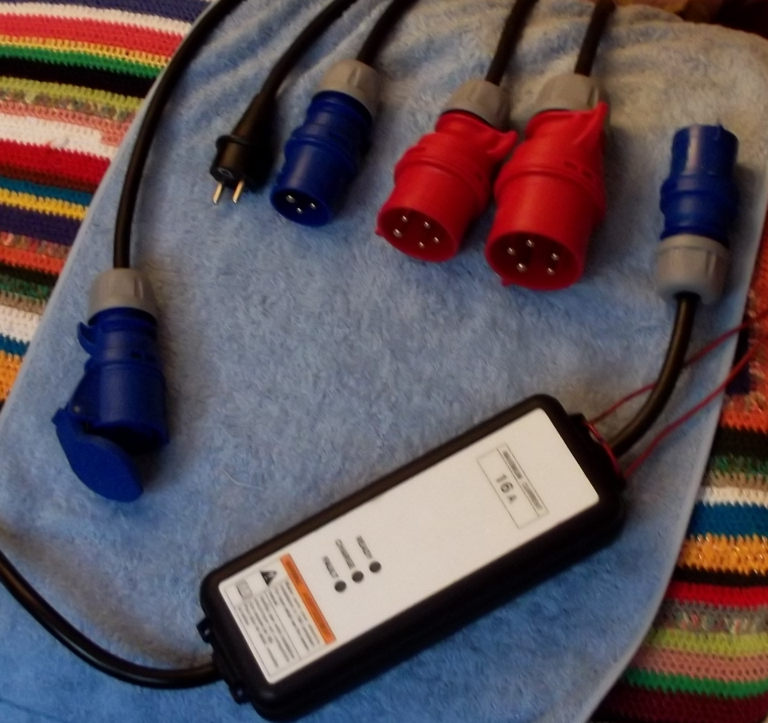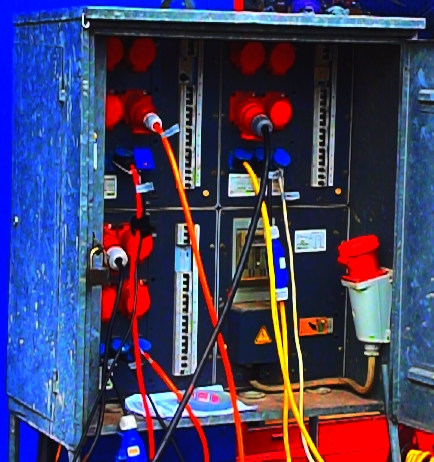Can you get something like
CEE-STECKER 4-16 :: CEE-cultivation plug, 230V, 16A, blue
http://www.reichelt.de/CEE-Connecto...tml?;ACTION=3;LA=3;ARTICLE=74912;GROUPID=3402
and
CEE-STECKER 1-16 :: CEE-plug, 230V, 16A, blue
http://www.reichelt.de/CEE-Steckver...CLE=29104;GROUPID=3402;artnr=CEE-STECKER+1-16
Try country Virgin Islands and language english :mrgreen:
The blue means 230 Volts and this version is "single phase" but I would not worry about "zero" = "L1" and "L1" = "L2" as long as "PE" is ground.
Here they are rather inexpensive. They can take 16A continuous and I am told they are used in container villages on construction plants all over the world.
Here is what you find in my trunk:
My Schuko (black) is a bastard that works both in France and Germany but not in Swizzerland or the UK. The blue CEE 230V/16 is what hardcore EV people do use in Europe and what you find at caravan lots. Red CEE 400V/16A is acriculture, industry and construction places and the bigger CEE 400V/32A is what Teslas like though they can use only one of the three phases but they can use the 32 amperes. There is a blue CEE 230V/32A but I have never seen one.
There is a red CEE 400V/64A and bigger, they can really grow big on fairy grounds. But 400V/32A is the biggest your electrician is allowed to install at home. The 50 kW quick chargers need a permission for each and every location and only the big electricity dealers are allowed to install and connect them. Maybe that is why electricity on construction and fairy grounds is astronomically high and depends on the phase of the moon.
Apropos, my manual says in bold print "no extension"
Looking around in real life nobody is charging without an extension and mostly you will need an adapter cable on the extension in the first place.
But please N E V E R touch a live wire without somebody watching you on youtube at least.
If you dont want to touch the wires yourself you are right. Dont do so.
If you love the fun be careful. Joining a hamradio club and learning for a hamradio license is a good idea and after passing the exam you should know what you are doing. Of coarse the are the usual way how to learn an get a proper license but amateur radio is an inexpensive way to go and you will meet a lot of people who can supervise your first steps for a beer or a glas of water.
Cheers
Peter and Karin



































